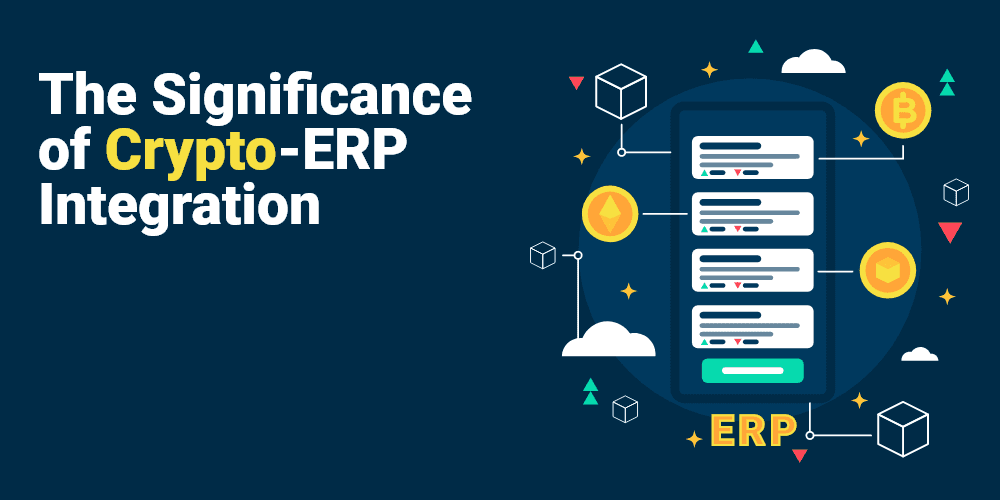The Significance of Integrating Cryptocurrency and ERP
Cryptocurrencies have revolutionized the financial landscape in recent years, offering a decentralized and secure digital currency. Simultaneously, Enterprise Resource Planning (ERP) systems have become crucial for businesses to streamline their operations. The integration of cryptocurrency and ERP brings numerous advantages, and Comstar USA has emerged as a leading player in implementing this integration. This blog explores why the integration of cryptocurrency and ERP is significant.
Enhanced Financial Efficiency:
Integrating cryptocurrency with ERP allows businesses to streamline their financial processes. With cryptocurrencies like Bitcoin and Ethereum, transactions can be executed rapidly and with minimal transaction fees, eliminating the need for intermediaries. By automating financial operations through the ERP system, businesses can achieve greater accuracy, transparency, and efficiency in managing their finances.
Global Transactions Made Easy:
Cryptocurrencies transcend borders, offering a seamless solution for global transactions. When integrated with ERP, businesses can accept and process cryptocurrency payments from customers worldwide. This integration enables quick and secure cross-border transactions, eliminating traditional barriers associated with currency exchange rates and international banking systems.
Multi-Currency Support:
As ERP systems integrate with cryptocurrencies, businesses can seamlessly handle multiple currencies. With cryptocurrencies taking the lead, organizations can conduct transactions in various digital currencies, expanding their global reach and accommodating the diverse preferences of customers. The inclusion of multiple currency payment gateways within the ERP system simplifies financial operations and eliminates the complexities associated with currency conversions.
Multi-Wallet Functionality:
ERPs can be connected to cryptocurrency wallets and accounts, enabling businesses to track balances, transaction histories, and account details in real-time. This integration ensures that businesses have accurate and current information on their crypto holdings and can reconcile their records accordingly. ERPs can automate the process of synchronizing data between different systems and platforms. For example, when a business completes a cryptocurrency transaction, the ERP system can automatically update relevant records, such as inventory, sales, and financial statements, reflecting the crypto trade in real-time.
Real-Time Data Fetching:
Incorporating cryptocurrency with ERP systems empowers businesses with the capability to fetch and update real-time data on cryptocurrency prices, market trends, and trading volumes. This integration allows businesses to monitor the value of their crypto assets, track market movements, and make informed decisions based on up-to-date information. This seamless flow of accurate insights helps organizations respond swiftly to evolving market conditions, providing a competitive edge in a dynamic business landscape.
Risk Management:
ERPs can assist in managing the risks associated with crypto businesses. ERPs can trigger alerts or automated actions when predefined thresholds are breached by continuously monitoring real-time data on cryptocurrency prices. This helps firms mitigate potential losses or take advantage of market opportunities.
Reporting and Analytics:
ERPs provide robust reporting and analytics capabilities, allowing businesses to generate real-time reports on cryptocurrency-related activities. This includes analyzing performance metrics, tracking profitability, and evaluating the impact of crypto investments. ERPs can also provide customizable dashboards that display real-time data, such as portfolio values, transaction history, and market trends.
Enhanced Security and Trust:
The integration of blockchain with ERP systems reinforces the security and trust aspects of businesses. By eliminating the reliance on a single central authority, blockchain’s decentralized nature significantly reduces the risk of data breaches and manipulation. Every transaction recorded on the blockchain is transparent, traceable, and immutable, ensuring data integrity and mitigating the potential for fraudulent activities. This heightened level of security enhances customer trust, particularly in sectors like finance, where the handling of sensitive information is paramount.
By embracing the integration of ERP systems into cryptocurrencies, businesses can unlock a host of benefits. From seamless multi-currency support to the flexibility of multi-wallet functionality, real-time data fetching for informed decision-making, and enhanced security and trust, this integration paves the way for increased operational efficiency and drives innovation within organizations.
Why Comstar USA?
Comstar USA, a trusted technology solutions provider, has played a pivotal role in integrating cryptocurrency and ERP. Their expertise and experience in cryptocurrency technologies and ERP systems have positioned them as leaders in this field. Comstar USA offers comprehensive consulting services, assisting businesses in understanding the benefits of integrating cryptocurrency with ERP and developing a customized implementation plan.
The integration of cryptocurrency and ERP holds significant potential for businesses in today’s digital economy. By embracing this integration, organizations can benefit from improved financial efficiency, simplified global transactions, multi-currency support to the flexibility of multi-wallet functionality, real-time data fetching for informed decision-making, risk management, reporting and analytics and enhanced data security. Comstar USA’s expertise in implementing this integration ensures a successful and seamless transition for businesses, helping them harness the advantages of cryptocurrencies within their ERP systems.









